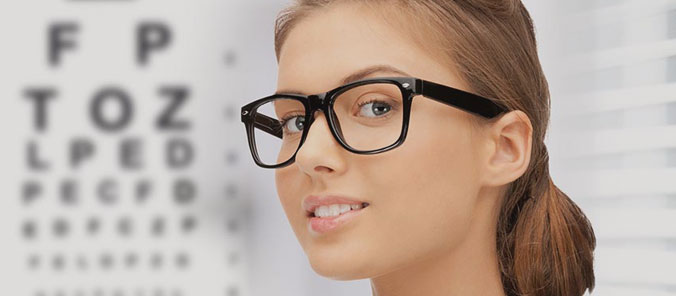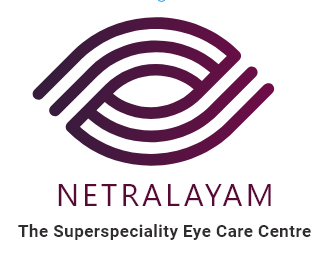Dr.Maneesh Singh
MBBS (Hons. Gold Medalist) | MS (Gold Medalist) Director | Netralayam The Superspeciality Eye Hospital | Kolkata Senior Consultant - Glaucoma and Cataract Services | Netralayam (VIP) Ex Consultant Sankara Nethralaya Joint Treasurer | Glaucoma Society of India Executive Body member Ophthalmological Society of West Bengal (OSWB) Scientific Committee member OSWB | Hony. Treasurer Glaucoma Society of India | Jt Treasurer Glaucoma Society of India from '20-'22
Netralayam (Mukundapur)
330, Barakhola,
Mukundapur Main Road
EM Bypass, Kolkata – 700099
Contact: +0 91 98744 39198
E-mail: docmsingh@gmail.com
Netralayam (VIP)
Shree Tower 2, RAA 36,
Raghunathpur Near Big Bazaar,
VIP Road, Kolkata – 700059
Contact: +0 91 98744 39198
E-mail: docmsingh@gmail.com
Glaucoma Surgery

Patient: What is Glaucoma?
Doctor:
Glaucoma is a complicated disease in which damage to the optic nerve leads to progressive, irreversible vision loss. Glaucoma is the second leading cause of blindness. Symptoms: There are typically no early warning signs or symptoms of open-angle glaucoma. Early detection, through regular and complete eye exams, is the key to protecting your vision. Everyone is at risk for glaucoma. However, certain groups are at higher risk than others like patients with family history of glaucoma, steroid users, age > 40 yrs and patients with eye injury.
Patient: What are the symptoms of glaucoma?
Doctor:
Chronic glaucoma is the most common type. It has no symptoms until eye sight is lost or central vision starts decreasing at a much later stage. Hence its called “The Silent Killer of Sight” Damage progresses very slowly and destroys vision gradually, starting with the side vision. This damage is irreversible. Patients with acute or sudden rise of eye pressure may experience eye pain, seeing halos around lights, blurry vision, nausea, vomiting and headache. Patients with chronic glaucoma may encounter frequent change of spectacle power.
Patient: who is at risk for glaucoma?
Doctor:
Although anyone can get glaucoma, some people are at higher risk than others. Some of the most common risk factors include; Over age 40 People with a family history of glaucoma Patients with diabetes/ High myopia (nearsightedness) atients with history of eye injury or use of steroids in any form.
Patient: What is chronic Glaucoma ?
Doctor:
Glaucoma is a chronic life long disease and most glaucoma are chronic in nature. However some patients experience acute or sudden rise of eye pressure (Like.. Acute angle closure glaucoma, uveitic or inflammatory glaucoma, steroid induced glaucoma). These are often referred to as acute glaucoma.
Patient: What is eye pressure and how it is measured?
Doctor:
Eye pressure or Intraocular pressure (IOP) is the fluid pressure inside the eye. Tonometry is the method used to measure this. The best instrument to measure eye pressure is Goldmann Applanation Tonometer. Eye pressure can be normal or raised in glaucoma patients. This is regarded at the most important causal risk factor in laucoma
Patient: What is normal eye pressure? If my eye pressure is high will I develop glaucoma?
Doctor:
Normal eye pressure 6-20 mmHg. Raised eye pressure and glaucoma are not synonymous; however patients with raised eye pressure are more prone for evelopment of glaucoma compared to those with normal eye pressure. Patients with raised eye pressure and normal nerve are termed as Ocular Hypertensive and not Glaucoma. They should consult their ophthalmologist regularly to make sure the raised eye pressure is not causing optic nerve damage.
Patient: I am having glaucoma. What should be my ideal eye pressure?
Doctor:
Normally eye pressure should be in the range of 6-21 mm Hg. The normal eye pressure also varies from individual to individual based on their corneal thickness. Corneal thickness is checked in glaucoma patients to determine their ideal eye pressure. For glaucoma patients ideal eye pressure is determined by the glaucoma specialist based on the stage of glaucoma (early, moderate or advanced), corneal thickness (thin, thick or normal cornea), age of the patient (or life expectancy) and the eye pressure noted before starting treatment (termed as baseline eye pressure). Based on these the glaucoma specialist may try to keep the eye pressure within 18, 16 or 14 mm Hg (often termed as Target EyePressure)
Patient: How is side vision affected in glaucoma ?
Doctor:
Without treatment, people with glaucoma will slowly lose their peripheral (side) vision. As glaucoma remains untreated, people may miss objects to the side and out of the corner of their eye. They seem to be looking through a tunnel. Over time when the disease becomes advanced straight-ahead or central vision may decrease until no vision remains.
Patient: Will I go blind from glaucoma?
Doctor:
That is difficult to answer and depends on numerous factors. Due to the many excellent medications available to us today most people, will not go blind from glaucoma. The rate of blindness from glaucoma is much lower today than ever before. Most patients who end up with blindness are those who are diagnosed extremely late or don't follow doctors advice sincerely.
Patient: My father is having glaucoma. what are the chances I may develop glaucoma?
Doctor:
Patients with parents or siblings with glaucoma have 3-5 times greater risk of developing glaucoma. Hence you should get your eyes checked once every year for glaucoma.
Patient: My father became blind due to Glaucoma and my elder brother is also suffering from glaucoma. Can I do something to protect myself from Glaucoma ?
Doctor:
Since you have a positive family history, the life time risk of having glaucoma for you
is around 20-25%. Which means that 75-80% chances are that you will never evelop
Glaucoma. However one needs to understand that there is no such available treatment to prevent Glaucoma. Also there is no foolproof method to predict who will develop glaucoma and who wont. In fact we always focus on its early detection because the aim of treatment is not to prevent Glaucoma but to prevent blindness from Glaucoma, which is possible if you are detected early and you follow the prescription and medical advice religiously. Hence you need to be under regular check up (6-12 monthly) so as to timely detect any early signs of Glaucoma.
Patient: How is Glaucoma Treated?
Doctor:
Glaucoma is a lifelong disease requiring lifelong treatment. Glaucoma is much like
hypertension and diabetes. We can control these diseases, however we can not, as of yet, cure them. Today there are numerous ophthalmic medications available to us in the treatment of glaucoma. If glaucoma can not be controlled with medications other
procedures, including surgery may be considered.
Patient: I have been using glaucoma medications for last 4 years but I haven't noticed any improvement in my vision. Why?
Doctor:
It’s a very good observation. The treatment of glaucoma aims to preserve the residual vision and not to regain lost vision. Hence patients undergoing glaucoma treatment
don’t appreciate any visual gain. On the other hand, if you are not using medicine regularly there will be gradual loss of vision which is irrecoverable.
Patient: Should I take vitamin supplements to prevent glaucoma progression ?
Doctor:
Role of dietary or vitamin supplements in glaucoma is not proven hence not prescribed. However one must avoid coffee (Caffeine) which can increase eye pressure and worsen the disease.
Patient: I am a regular smoker. Will it effect my glaucoma ?
Doctor:
Smoking causes increase in intraocular (eye) pressure and can harm glaucoma patients. Tobacco intake in any form is known to cause optic nerve damage hence should be avoided by glaucoma patients.
Patient: Patient: Doctor can I watch TV ?
Doctor:
Watching TV, sewing or reading do not have any harmful effect on glaucoma , however one must maintain a balance and there should be proper lighting and comfortable working position to avoid strain.
Patient: Can I exercise ?
Doctor:
Exercise in general is good for overall health, reduces weight, controls blood pressure and also improves blood circulation in body which ultimately leads to healthy optic nerves. One should avoid exercises which require holding breath for prolonged period like Shirsasan and lifting heavy weights.
Patient: I am using glaucoma eye drop for last 3 years and I have developed under eye blackening. What is the cause?
Doctor:
Some glaucoma medications (prostaglandins) may cause under eye blackening. This is reversible and skin color becomes normal after stopping the eye drop. If you are unable to accept this complication (discoloration) you can request your glaucoma specialist to change the medication. However whether the medicine needs to be continued or not has to be decided by your doctor based on your eye condition. There are some small precautions that can be tried
1. Before applying eye drops (prostaglandins) coat eyelids with a thin layer of Vaseline2. The excess medicine that leaks out should be immediately wiped off.
Patient: How to apply eye drops?
Doctor:
1. Pull the lower lid and make a pouch2. Keep the bottle above the eye at a distance3. Apply one drop into the pouch.4. Close the lids for 3 minutes.5. Keep the index finger pressed over junction of lids and nose for 1 minute6. Do not apply different eye drops at the same time.
Patient: Basic Tips for Glaucoma Patients:
Doctor:
1. Medications should be used regularly under medical supervision (Compliance)2. Periodic examinations of the eye pressure, optic nerve, angle and the peripheral vision are necessary for all glaucoma patients (even if surgery has been performed)13. Early diagnosis is the first step in preserving your vision.
Patient: Patient: What Can I Do to Decrease My Chances of Going Blind?
Doctor:
Glaucomatous blindness is preventable with the current available treatments. Using the medications as prescribed and regular doctor visits are crucial to preventing the progression of glaucoma. It is best to monitor the eye pressure three to four times per year, repeat visual fields (side vision test) at least annually.You can also help protect the vision of family members and friends who may be at high risk for glaucoma – especially over age 40 and evryone over age 60. Encourage them to havean comprehensive eye examination once every year which should include vision testing, eye pressure, gonioscopy or angle evaluation and dilated evaluation of optic nerve and retina.
